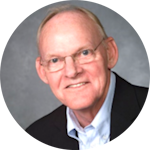PROCEEDINGS
|
|
13:30 - 13.40
|
Setting the scene (What should be achieved) –
[handouts]
By Israel Taiwo, Chair of FIG WG
|
|
|
The Origin of the FFPLA Concept -
[handouts]
By Stig Enemark, FIG Honorary President
|
|
|
Rethinking Misconceptions about the FFPLA Concept – [handouts]
By Israel Taiwo, Chair of FIG WG
|
|
|
Towards Effective Upscaling of FFP Approaches;
Experiences from Implementations – .
- Christelle van den Berg - [handouts]
- Salah Abukashawa - GLTN Partner
- Markus Kopper - Trimble - [handouts]
- Brent Jones - ESRI - [handouts]
|
|
|
Designing FFPLA Approaches towards Upscaling –
SLAS
Panel discussion to be coordinated by Israel
Taiwo
|
|
|
FFPLA Publication (Survey, content, responses,
etc.) [handouts]
By Israel Taiwo, Chair of FIG WG
|
|
|
Interactive / Rejuvenating Activity
|
|
|
Initial Presentation of the request/idea – [handouts]
By Marisa Balas (based on CLPA and AUC request)
|
|
|
Presentation on FFPLA and WLRs
This part of the session is intended to bring some light into
how the FFPLA promotes and secures WLRs, a list of countries
where it has been implemented, and from which there is data to
validate its benefit towards advancing WLRs
By Israel Taiwo, Chair of FIG WG
|
|
|
Discussion FFPLA and WLRs
This part of the session is intended to bring into the
discussion different points of view of how FFPLA promotes WLRs
and how this can move forward
|
|
|
Potential Article discussion
This part of the session intends to discuss a proposed
structure for the article, and engage key people to contribute
to specific parts of the paper.
- Introduction
- FFPLA
- FFPLA and WLRs
- Good practices and lessons learned from country
implementations – (to be confirmed)
- Mozambique
- Benin
- Chad
- Ghana
- Rwanda
- Tanzania
- Uganda
- Ghana
- Scaling up good practices – way forward
- Conclusions
|
|
|
Interactive discussion
- Building a case for ‘World Land Tenure Day’.
- …
|
|
17.50 - 18.00 |
Wrap up |
|
PRESENTERS
|
|

|
Stig Enemark is Professor Emeritus
of Land Management at Aalborg University, Denmark, where
he was Head of School of Surveying and Planning for 15
years. He is Honorary President of the
International Federation of Surveyors, FIG, where he
served as President 2007-2010. He is a well-known
international expert in the areas of land governance,
land administration and spatial planning, and related
issues of education and capacity development. He has
consulted widely in these areas, especially in Asia and
Sub-Sahara Africa. He has published several books and
more than 400 scientific papwrs. See:
https://scholar.google.dk/citations?user=lvIsEPkAAAAJ&hl=en
|
|

|
Marisa Balas is a PhD candidate in
the field of Social Sustainability and Development at
Universidade Aberta in Lisbon. For the past 15 years,
she has been engaged in land reforms, revision of land
administration processes, and implementation of land
information systems. She is an active member of FIG,
including as chair of the Commission 7 Working Group on
Women’s Land Rights, a member of the SDG Task Force and
the FFPLA Working Group.
|
 |
Salah Abukashawa, an experienced
surveying engineer and esteemed fellow of the Sudan
Engineering Society, brings over 20 years of expertise
in land governance and policy, urban/rural development,
and conflict resolution. As the founder of ISTIDAMA
(Centre for Land and Environmental Governance) in Sudan,
he serves as a researcher and lecturer, shaping policy
and land governance standards. With consultancies for
organizations like the GLTN of UN-Habitat and JICA, his
proficiency includes land governance, strategic
planning, and mapping. Holding a master's in
International Relations and a Masters in Geoinformation
Science, Salah's commitment to sustainable development
is evident through his alignment with various
Sustainable Development Goals.
|
|

|
Dipl.-Ing. Markus Koper is a survey
engineer working for Trimble’s Cadastral Surveying team.
His focus is on Fit-For-Purpose Land
Administration and cadastral boundary surveying.
He is based in Bochum, Germany, loves road cycling and
collecting vinyl records.
Markus started 1998 in land surveying with a 3-year
educational training. He finished with a degree as a
surveying technician and a lot of field experience.
Afterwards Markus started studying geodesy at Bochum
University of Applied Sciences.
After finishing this with an engineering diploma in
geodetic survey, he started his career with Trimble in
2012.
|
|

|
Israel Oluwaseun Taiwo is a
geomatics lecturer at the Federal Polytechnic Ado-Ekiti
and a PhD Scholar at the Federal University of
Technology, Akure, Nigeria. Israel is a registered
Surveyor with the Surveyors Council of Nigeria and a
member of the Nigerian Institution of Surveyors. Israel
currently chairs the FIG working group 7.2 -
Fit-for-Purpose Land Administration (FFPLA), where he
focuses on engaging the challenges of scaling up FFPLA
approaches and fostering efforts to ensure the security
of tenure for all.
|
|
